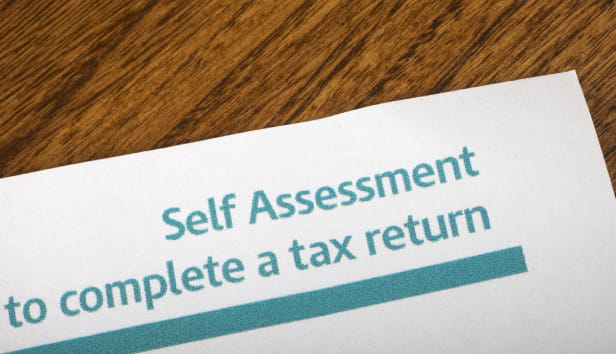Been meaning to sort out your pile of paperwork but not sure what you need to keep? Receipts, bills, warranties and bank statements can easily pile up.
If you know what paperwork you need to retain and why, the task of sorting it becomes much less of a challenge. Here, we explain which documents to keep and which you don’t, as well as simple tips for organising them.
What’s on this page?
As soon as you buy any new goods – anything with a warranty or where you have a reasonable expectation that it might last a certain amount of time – put all the paperwork, like the receipt and warranty details, together in one place.
Even if there’s no warranty, the receipt can still be useful. You can return a faulty item within 30 days, or often longer. Under the Consumer Rights Act 2015, goods must last for a “reasonable length of time” – which will depend on the item and how expensive it was. You may also be able to get a refund or a replacement product if you can show the item was faulty based on the date you bought it.
Might you sell the item later? If so, keeping the receipt, warranty and instructions might come in handy. In some cases having the original packaging can increase the selling price. If it’s an expensive item, some people prefer to keep the paperwork for as long as they have the item, just in case it gets stolen or damaged and they need to make a claim on their contents insurance.
If you’ve ever done a self-assessment tax return, then HMRC suggests that individuals (not including people who are self-employed) who file their tax returns on time should keep hold of any tax-related paperwork for at least 22 months.
If you filed late, HMRC suggests keeping it for 15 months from the date your return was filed. But be aware that HMRC can fine you if your records are incomplete or faulty. So rather than risk that, you might want to hold onto any paperwork for a little longer – perhaps two to three years.
Paperwork that you might need to complete a tax return is likely to include:
If you’re self-employed, you must keep paperwork for at least five years after the submission deadline.
As well as all of the items listed above, you’ll also need to keep:
Bear in mind that you might be able to access a lot of this information online, which means you can get rid of paper copies. But verify this first and download copies.
Save them in more than one location (ensuring you remember where they are) in case of technical issues, like your computer breaking down.
If you are claiming tax credits, or are on benefits, it’s particularly important to keep hold of your paperwork. HMRC recommends keeping council tax bills, utility, mobile phone, gas, electricity, rent paperwork, bank statements, and other bills and receipts. This is because in proving that you should still qualify for benefits, you’ll need to show incoming and outgoing finances in detail.
If your home or car has had repairs, you’ve had new windows put in, or you’ve had a conservatory renovation or even a new roof, do not throw away or destroy your paperwork that outlines the work done, when and who by.
The reason is simple – if you need to sell your home or car, buyers may want to see evidence of any work that’s been done. It’s not enough for you to show them your lovely new double-glazing, they’ll need to see the paperwork too.
Similarly, they’ll want to see building regulation consent paperwork if you’ve had major renovation work done. Insurance companies may also request paperwork like this if your house suffers a fire, flooding or similar and you need to make a claim.
Make sure you keep documents that relate to any current insurance policies, including the policy certificate and the renewal notice. If you’ve made a claim or are thinking of making one, keep all the evidence you need for that until the claim is completely settled, and ideally a bit longer.
There’s no obligation to keep any documents in your car, but it’s a good idea to keep all of these somewhere safe where you can access them easily. Never keep your V5C logbook in your car, in case of theft.
Paperwork to keep:
Most homes are registered at the Land Registry so there’ll be an electronic entry of many of the details you need to hand, whenever you need it.
That said, old deeds sometimes contain details that aren’t in those electronic records, so it’s always worth keeping hold of them. Covenants, which can dictate what can be done with a property (not permitting the building of a block of flats, for example, or cutting down of trees) may only be referenced on the old paper deeds, so these are a good idea to file away safely.

There’s no going back once the shredder has done its work. Our list will give you some pointers but, if you aren’t sure, it’s best to hold onto it and file it away in a place you can easily find it.
You already know that it’s vital you keep your
But if you want to avoid a major panic when you’re travelling or needing to verify your ID, it is essential that you know where they are.
Keep them in a safe if you have one, or designate a box or drawer for them. It’s also a good idea to make sure that your family – or any friends or neighbours that you trust – know where they are too, in case of an emergency.
If your passport has expired, while it’s possible to send it away for destruction, it’s a better idea to just save it in a safe place separate from your current passports (so you don’t accidentally take the old one on a trip). It might contain current visas or hold stamps that bring back treasured memories.
If you do decide to get rid of it, don’t use a shredder – modern passports are made of highly-durable material that could wreck your machine.
Once you've worked out what you do and don’t need to keep, you’ll need to get organised. Jen Childs, owner of professional organising and decluttering service House Calmer, says effective filing solutions are unique to the person using them.
“Some people like multiple files with labels and categorisation. For example, finance, car, insurances, utilities. If that sounds like you, give it a go! For others, a simple A4 lever arch file with punched pockets for slotting in your papers that come in on an annual basis can work well. This way you only have one file for each year.”
She adds: “Don’t buy filing solutions until you’ve worked out what you need to keep, how you want to file it and where it’s best to store everything.”
If you’re trying to cut back on paperwork, switching to digital services and online bank statements can help – but remember you’ll still need to store digital copies securely.
1. Gather all your paperwork into one place.
2. Separate your paperwork into five different categories: action, archive, household, recycle and shred.
3. Shred documents that you no longer need. If in doubt, put to one side to review later.
4. Place the action pile on your desk or somewhere else where you’ll see it, so you can work through it throughout the week.
5. For the archive pile, divide financial, home, work, car, etc, and use whatever filing system you prefer. This pile will contain important documents, so we’d recommend storing your archive documents in a fire-proof box. These are available from around £30.
6. You can organise your household pile in the same way as your archive category, but we’d recommend storing it in an accessible place as you’ll need to refer to these documents most often.
Tackling that growing pile of paperwork can seem overwhelming, but you’ll feel so much lighter after doing so. Plus, once everything’s organised in its correct place, it’ll be easier to maintain – as well as easy to process by other family members if you ever need to ask for their help.


Expert guidance on warranties, payments, and pre-purchase checks..

If you need to complete a self-assessment tax return, you'll need to submit it by 31st January. We're here to help you with what to do.




From sales to cashback, here’s how to get more for your money online.
